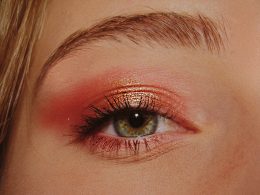Understanding the difference between sensitive skin and a makeup allergy is important to properly address and manage any skin-related concerns. While they may share similar symptoms, there are distinct characteristics that differentiate the two:
Sensitive Skin:
1. Reactivity: Sensitive skin tends to react more easily to various environmental factors, such as weather changes, harsh chemicals, or fragrances. It may become irritated, red, or itchy when exposed to these triggers.
2. Common Symptoms: Symptoms of sensitive skin include redness, dryness, tightness, itching, and a general discomfort or sensitivity to certain products or environmental conditions.
3. Triggers: Sensitive skin can be triggered by external factors, such as harsh skincare products, extreme temperatures, pollution, or certain fabrics.
4. Overall Sensitivity: Sensitive skin is generally characterized by heightened reactivity and discomfort, even without specific exposure to known allergens.
5. Tolerance Threshold: Individuals with sensitive skin may have a lower tolerance threshold for certain ingredients or environmental factors, requiring them to choose milder, hypoallergenic products that are less likely to cause irritation.
Makeup Allergy:
1. Allergic Reaction: A makeup allergy is an immune system response triggered by specific ingredients in cosmetic products. It involves an allergic reaction that can vary in severity, ranging from mild irritation to more pronounced symptoms.
2. Specific Trigger: Allergic reactions occur when the immune system recognizes certain ingredients as harmful and responds accordingly, leading to symptoms such as redness, swelling, itching, or a rash in the area of contact.
3. Timing and Consistency: Allergic reactions typically occur consistently when exposed to the specific allergen. Symptoms may develop immediately after product application or may take some time to appear with repeated exposure.
4. Allergen Identification: Identifying the specific ingredient causing the allergic reaction can help avoid further exposure and prevent future allergic responses.
It’s important to note that sensitive skin and makeup allergies can coexist. Individuals with sensitive skin may be more prone to developing allergies to certain cosmetic ingredients due to their heightened reactivity. If you suspect that you have a makeup allergy, it’s advisable to consult a dermatologist or an allergist for proper diagnosis and advice.
To manage sensitive skin or minimize the risk of allergic reactions to makeup:
– Choose gentle, hypoallergenic products specifically formulated for sensitive skin.
– Read ingredient labels and avoid products containing known allergens or irritants.
– Perform patch tests on a small area of skin before using a new product on your face.
– Keep your skincare routine simple and avoid using too many products that can potentially irritate the skin.
– Protect your skin from harsh environmental factors, such as extreme temperatures or pollution, by using appropriate skincare and protective measures.
If you experience persistent or severe symptoms, it’s always best to seek professional medical advice for an accurate diagnosis and personalized recommendations for managing your skin concerns.












